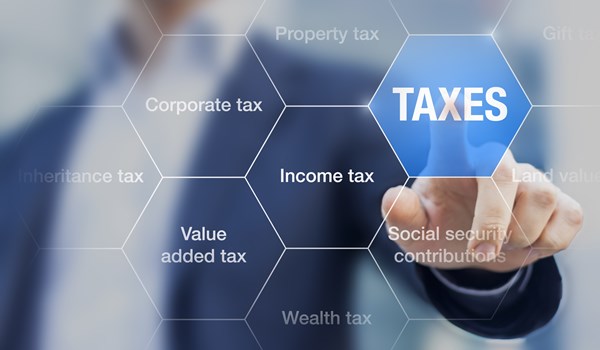Jurisdictions
Regions
Industry Sectors
26/06/20
UK: New lockdown mindset shows consumers have low trust in businesses over tax paid.

As published on accountancyage.com, Thursday 25 June, 2020.
Fair Tax Mark’s annual polling reveals that consumer behaviour has shifted during lockdown, in which public distrust in businesses paying tax is significantly higher.
78 percent of respondents believe that all companies, regardless of their size, should publicly reveal the taxes they pay and don’t pay in the UK, with 79 percent saying they would rather shop with a business that proves it’s paying its fair share of tax.
“One of the biggest crises in the UK right now is trust,” says Paul Monaghan, chief executive of the Fair Tax Mark. “There’s always been very high levels of concern since we began the polling, but it’s increased recently because people are concerned whether there is going to be enough revenue.”
The UK debt now exceeds the size of its economy due to high government expenditure caused by the pandemic – an economic situation that has raised
“They want reassurance that everybody is going to pay their fair share. Without doubt, the pandemic has made people more concerned and attuned to how we are going to find the tax revenue to pay for what is happening right now,” says Monaghan.
“Everybody is focused on navigating the crisis over the coming weeks, but people are making mental notes of the businesses that seem to not be contributing or being hypocritical.”
Virgin Atlantic, which has not paid taxes on its profit to the British economy in the past two years according to Forbes, sought a government bailout in March – causing an “enormous fury” over the airline company, says Monaghan.
“All government bailouts should have a condition attached, which is that going forward, the business should have to pledge and comply with good tax practice,” he adds.
Findings from the Fair Tax Mark show that eight in 10 respondents say businesses that were given government bailouts should be forced to agree on terms that restrain tax avoidance and follow responsible tax conduct.
“The colossal sums paid out by the Exchequer to support staff on furlough has reinforced how important it is that businesses contribute by paying the correct amount of tax in the countries in which they are based,” said John Hood, partner and dispute resolution expert at Moore Kingston Smith, via email.
Large businesses have also been finding ways of paying low taxes despite high profit, explained Hood.
77 percent of the respondents said they believe multinationals should be forced to reveal income, profit, and amount of tax paid in each country in which they operate.
Monaghan says consumers “need to see the multinationals that trade in this country producing country by country reports on their income profit tax.”
In 2016, the European Commission proposed new public tax transparency rules for multinationals, requiring those operating in the EU with revenues above €750m a year to disclose information on profits and taxes paid in the EU country-by-country.
However, the Commission has since updated the rule. In 2017, MEPs agreed on new measures to protect information deemed commercially-sensitive, allowing multinationals to keep some information hidden.
“A range of loopholes and exemptions, plus concern for the ‘spirit’ of the law, combine to blur the lines around what is considered legitimate,” said Matthew Gilleard, senior media strategist at Infinite Global and former editor of International Tax Review, via email.
Revelations about low corporate tax bills from multinationals, such as the 2012 report published by Reuters which disclosed Starbucks’ legal strategies to pay low taxes, have made compliance with tax rules “increasingly a focus of public interest,” said Jane MacKay, head of tax at Crowe, via email.
Business transparency on profit and tax would enable consumers to form their own opinion onto where they purchase their goods from.
“This research shows that consumers are taking a more values-driven approach to selecting where to shop and which brands to engage with. Hypocrisy will not be tolerated and businesses that have benefited from government schemes must be seen to be ‘doing the right thing’,” said Gilleard.
“The direct link between tax contributions and societal values means that organisations must be proactive and transparent in explaining their tax position. More than ever, the tax gap between rhetoric and reality poses a significant reputational risk for any business.”
Findings from the Fair Tax Mark reveal that trust in HMRC by the public has significantly increased over the past three years, with 58 percent of respondents now considering it to be a trusted verifier of good corporate tax conduct, compared to 48 percent in 2018.
This increase in trust, according to Monaghan, is due to HMRC “closing a lot of loopholes,” in which the amount of tax collected has risen. In 2018/19, tax receipts for the UK amounted to £623.36bn – the highest it’s ever been since 2000/01.
“It’s a government body, it’s seen as doing a difficult job. A lot of people think it’s doing the right thing – catching the tax dodgers and clamping down on tax evasion,” says Chris Williamson, tax partner at Price Bailey.
Only 13 percent of respondents, however, believe that company auditors provide accurate information on taxes paid by companies.




